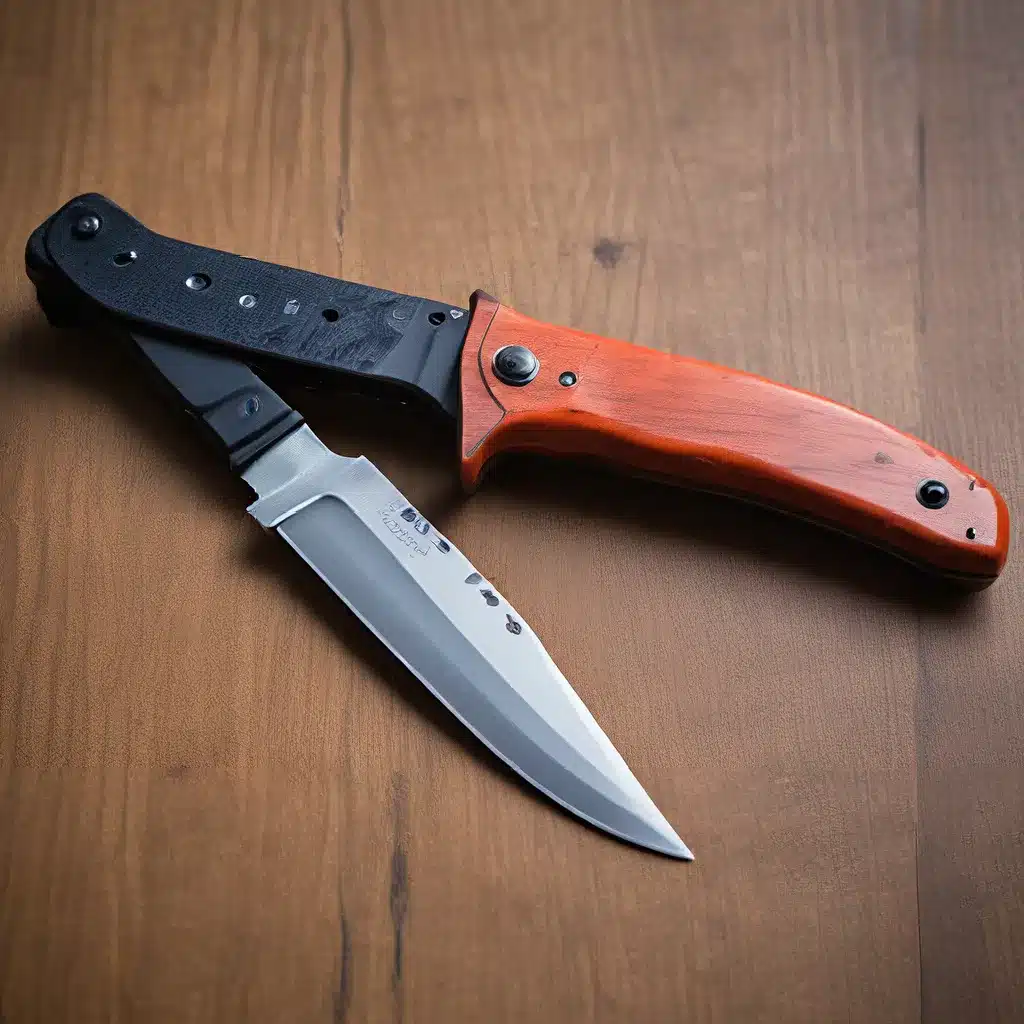
As a self-proclaimed knife enthusiast, I’ve always been fascinated by the intricate legal landscapes surrounding these everyday tools. It’s a topic that often flies under the radar, with many people unaware of the nuanced and sometimes contradictory laws that govern the ownership, carry, and use of knives. But in today’s world, where public safety concerns are paramount, it’s crucial that we all stay informed about the evolving knife legislation.
Navigating the Complexities of Knife Laws
Knife laws can be a dizzying maze to navigate, with each state, county, and even city having its own set of regulations. What might be perfectly legal in one jurisdiction could land you in hot water just a few miles down the road. It’s a frustrating reality that can leave even the most conscientious knife owner feeling uncertain and anxious.
One of the primary challenges is the lack of standardization across the United States. While some states have relatively permissive laws, allowing the carry of large fixed-blade knives or even automatic knives, others take a much stricter approach, banning anything beyond a basic pocket knife. And the criteria for determining what’s legal and what’s not can be downright baffling.
For example, the District of Columbia has a blanket ban on the possession of any knife with a blade longer than 3 inches, with few exceptions. Meanwhile, neighboring states like Virginia have a more nuanced set of laws that consider factors like blade length, locking mechanisms, and intended use.
The Evolving Landscape of Knife Legislation
The landscape of knife legislation is constantly shifting, with new laws and regulations being introduced at a dizzying pace. What was once considered a harmless tool can suddenly become a prohibited weapon, leaving law-abiding citizens potentially facing hefty fines or even jail time.
One notable trend in recent years has been the increasing focus on “switchblade” or automatic knives. These knives, which open with the press of a button, have long been the target of legislative scrutiny, with many states and municipalities enacting outright bans or strict regulations on their possession and use.
The justification for these laws is often rooted in concerns about public safety, with the perception that automatic knives are more easily concealed and can be deployed quickly, potentially leading to increased violence. However, the reality may be more nuanced, as many knife enthusiasts argue that these features actually make automatic knives safer to use in certain situations.
The Importance of Staying Informed
Given the ever-changing and often confusing nature of knife laws, it’s crucial for knife owners and enthusiasts to stay vigilant and informed. Failing to do so can have serious consequences, ranging from hefty fines to potential jail time.
One of the best ways to stay up-to-date is to regularly check reputable sources, such as state and local government websites, as well as industry organizations like the American Knife & Tool Institute (AKTI). These resources can provide the latest information on relevant laws and regulations, helping you navigate the legal landscape with confidence.
It’s also important to be mindful of your surroundings and the local laws when traveling with your knives. What might be perfectly legal in your home state could be a criminal offense in another jurisdiction. Always do your research and err on the side of caution to avoid any unpleasant encounters with law enforcement.
Finding the Right Knife for Your Needs
With so much uncertainty surrounding knife laws, it can be tempting to simply avoid carrying any knives at all. But that’s not a practical solution for many people, as knives remain an essential tool for a wide range of activities, from outdoor pursuits to everyday tasks.
When it comes to finding the right knife for your needs, it’s crucial to strike a balance between functionality and legal compliance. This might mean opting for a smaller, more discreet blade that still meets your requirements, or choosing a model with a non-locking mechanism to comply with local regulations.
It’s also worth considering the intended use of the knife when making your selection. A large hunting knife might be perfectly legal in a rural area, but it could raise eyebrows (and legal issues) in a more urban setting. By thoughtfully matching your knife to your needs and the surrounding environment, you can minimize the risk of running afoul of the law.
Staying Vigilant and Advocating for Change
As knife enthusiasts, we have a responsibility to stay informed and engaged with the evolving landscape of knife legislation. While it’s understandable to feel frustrated by the patchwork of laws and the occasional overreach of government regulation, the reality is that public safety concerns are a legitimate and understandable priority.
That said, we shouldn’t simply accept the status quo. There is an ongoing dialogue and debate around the appropriate balance between individual rights and public welfare, and knife owners can play an active role in shaping the conversation.
Through organizations like the AKTI, we can advocate for clearer, more consistent laws that protect public safety without unduly infringing on our rights as responsible knife users. By engaging with lawmakers, participating in public forums, and sharing our perspectives, we can work towards a future where knife ownership and carry is better understood and supported.
It’s a complex and ever-evolving issue, to be sure, but by staying informed, advocating for reasonable laws, and choosing our knives wisely, we can navigate the legal landscape with confidence and continue to enjoy these essential tools.


